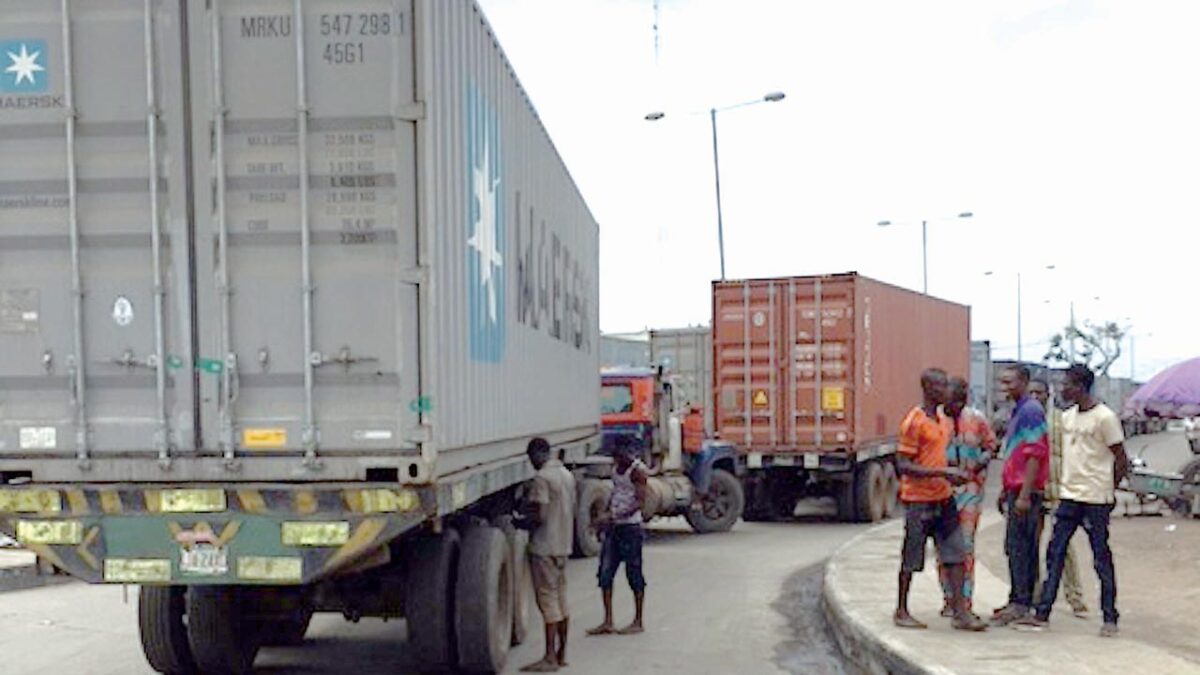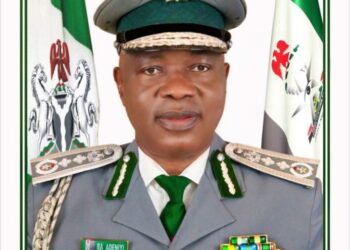
In the aftermath of the recent peace treaty brokered between the Maritime Workers Union of Nigeria (MWUN) and various trucking associations regarding the contentious issue of levy collection from truckers, a check by our correspondent last week reveals lingering challenges in the effort to eradicate extortion and streamline operations within Nigeria’s transportation sector. This is even as the question of who actually collects levies and fees from truckers remains unanswered.
Recall that the peace treaty that was put together by the Maritime Workers Union of Nigeria (MWUN) was hailed as a significant milestone in resolving long standing disputes, aimed at establishing clarity and accountability regarding the collection of levies from truckers.
However, on-the-ground observations by our correspondent at key transit points such as the Tin Can Port suggest that implementation of the agreement faces formidable obstacles.
Despite concerted efforts, eye witness reports by our correspondent reveal persistent instances of extortion perpetrated by unauthorized individuals, commonly referred to as touts, who continue to target truckers for illicit payments along transportation routes.
This flagrant disregard for the MWUN-brokered terms of the peace treaty underscores the urgent need for enhanced enforcement mechanisms and collaborative intervention strategies.
When queried about the authority vested with the mandate to oversee levy collection, the Vice President of the National Association of Truck Owners (NAMTOP) Mr. Rilwan Bello shed light on the multifaceted approach adopted by stakeholders. Emphasizing collaboration as the cornerstone of their strategy, he highlighted the joint initiatives between MWUN, NAMTOP, and the Lagos State Truck and Cargo Operators Committee (LASTCOC) in addressing the scourge of extortion.
He explained that central to this collaboration is the commitment of the Nigerian Ports Authority (NPA) to launch targeted crackdowns on rogue elements operating on transportation routes. Bello expressed optimism regarding the efficacy of these measures in curbing illegal practices and restoring order within the industry.
However, when informed that the President General MWUN, Adewale Adeyanju had during the peace meeting with the truckers said the Lagos state government has no jurisdictional authority over levy collection, he expressed nuanced perspective while affirming the role of Lagos State, through LASTCOC, in fee collection, adding that Lagos State possesses exclusive jurisdiction over port operations, even as he cited the presence of the Port Police Command and the jurisdiction of the Lagos State Commissioner of Police while advocating for a more inclusive approach to governance and regulation within port facilities.
He told our correspondent that: “From the information we received from NPA, they said they will be raiding those boys on the road, extorting truckers. So, regarding the collaboration between MWUN and NAMTOP, I think it will be a wonderful initiative that will put an end to these extortions because it will eliminate all these unnecessary bottlenecks between MWUN and trucking associations, ensuring sincerity of purpose and fostering familiarity between the two of them.
“We cannot simply sit by and allow the port premises to be overtaken by non-state actors. That’s why there is already collaboration in place. I’m confident that by the time NPA swings into action with their own task force, along with our own personnel, things will be up and running smoothly, and all those illegalities will cease.
“Lagos State set up a committee, LASTCOC. So, LASTCOC is like a part of NAMTOP. Therefore, we are all in this together, and I’m sure we’ll get it right.
“I think Lagos State would perceive that statement as uncalled for. Why would you say Lagos State has no jurisdiction over the port? So far, the port falls within the purview of the state government, and all these non-state actors are part of Lagos State. I mean, you know, the local government is under Lagos State, the Apapa local government is under Lagos State. So, there’s no way anybody can argue that Lagos State has no jurisdiction over the port.
“Yes, there is a police port command within the port, and likewise, there is a Lagos State Commissioner of Police who also holds authority over anything happening within the state. So, I believe it’s just a collaborative effort that will eradicate all these touts from the roads. Therefore, LASTCOC will work together with MWUN and NAMTOP”
Meanwhile, despite these debates, our correspondent observed that a consensus has emerged among trucking associations regarding the positive impact of collaboration with MWUN in resolving internal disputes.
Speaking also with our correspondent, Abdullahi Inuwa, a representative of the National Association of Road Transport Owners (NARTO), lauded the collaborative efforts, asserting that the establishment of a unified body for fee collection has effectively quelled internal conflicts.
“We are working together now, there is no fight, so MWUN is collaborating with us and we are working as one now”, he said.















